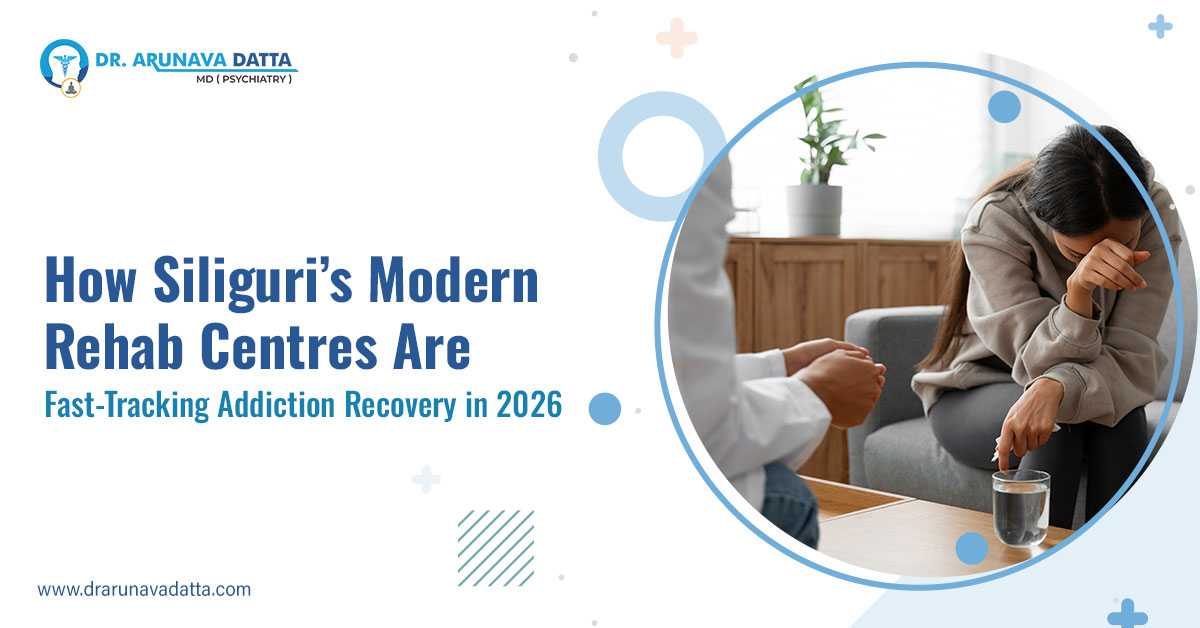Mental health issues are getting more frequent. While depression, anxiety, hallucinations, schizophrenia, bipolar disorder, etc., are common, some conditions are there that we rarely know about. All these mental health concerns cover a wide range of experiences. Consulting a highly experienced psychiatrist in Siliguri or at your nearest location is of great help.
This blog focuses on seven lesser-known mental health conditions and emphasizes the importance of prompt and compassionate mental care. Only by shedding light on them will we be able to better serve people in need and increase our understanding of mental health in general.
1. Ganser Syndrome
A rare and controversial disorder, Ganser's syndrome is characterized by the creation of approximate replies (or near misses) to really basic queries. Ganser syndrome is currently classified as a dissociative and conversion disorder by the World Health Organization.
And over the years, medical professionals have argued regarding the nature of the illness. You feel cut off from your own identity, memories, and thoughts when you have dissociative disorders like Ganser syndrome. Brain tumors, head injuries, strokes, infections affecting the brain, etc., can increase the risk of this rare mental health concern.
2. Autocannibalism
The practice of eating sections of one's own body is called autocannibalism, often referred to as self-cannibalism or autosarcophagy. It may include eating one’s hair, boogers, scabs, skin, or nails.
A complicated problem, autocannibalism is generally associated with underlying mental health issues, including depression or anxiety.Untreated autocannibalism can cause infections, scars, bruises, nerve damage, bleeding, and in rare circumstances, serious side effects that might be fatal.
3. Exploding Head Syndrome
It is a sleep condition that causes you to hear loud, unexpected noises while you're asleep, such as explosions.No one else can hear it, and the sound is fake. However, it may still be a frightening and annoying disruption.
A person with exploding head syndrome may hear the sounds ofbreaking glass, a blast, shots, a storm or thunder, loud musical instruments, etc. But, it’s not painful and is a benign parasomnia. Disturbing auditory hallucinations are the signs here and talking to a mental health expert always helps.
4. Alice in Wonderland Syndrome
A neurological disorder known as Alice in Wonderland syndrome alters how you view your body, the outside world, or both.This rare disorder interferes with the brain's capacity to interpret sensory information.
Distorted perception and disorientation are hallmarks of Alice in Wonderland syndrome. With this condition, you can become less aware of time, affecting several senses, including vision, touch, and hearing.
According to experts, the brain's abnormal electrical activity causes improper blood flow to the areas responsible for processing your surroundings and experiencing visual perception, leading to Alice in Wonderland Syndrome. Talk to one of the leading psychiatrists in Siliguri City or near you for personalized treatment plans and healing.
5. Histrionic Personality Disorder
To attract attention, people with HPD frequently act out or in ways that are not suitable.Extreme, erratic emotions and a distorted self-image are hallmarks of histrionic personality disorder (HPD), a rare psychiatric illness.
A collection of diseases known as "Cluster B" personality disorders includes histrionic personality disorder. HPD generally starts in the early 20s. Genetics, parenting styles, and childhood trauma are the possible risk factors for HPD.
6. Capgras Syndrome
Capgras syndrome, also known as Capgras delusion, is a mental illness in which a person believes that a friend, spouse, parent, pet, or other close relative has been replaced by a replica.
The Capgras delusion falls under the category of delusional misidentification syndrome. It is a group of beliefs in which individuals, locations, or objects are misidentified.
Whenone has Capgras syndrome, that personrecognizespeople but doesn’t think they're the same person they know.Receiving psychiatric care, including medications and cognitive behavioral therapy, can significantly improve the quality of life.
7. Dissociative Identity Disorder
Previously called multiple personality disorder and split personality disorder, dissociative identity disorder (DID) is a mental health illness in which a person has two or more distinct personalities.
These personalities may influence a person’s behavior. Stressful life experiences, abuse, traumatic events, etc., can lead to DID. Self-injury is a major complication of dissociative identity disorder,and cognitive behavioral therapy or dialectical behavioral therapy with medications can help a person live a healthy life.
Importance of Psychiatric Care
Rare mental health illnesses challenge what we know about the mind, brain, and human experience. While they are rare, they need to be diagnosed because a timely diagnosis can provide the best possible healing and management of the disease.
Psychiatric treatment provides critical pathways to diagnosis, alleviation, and hope. Compassionate mental health care with a personalized and holistic approach is crucial to optimal recovery and management of these conditions. Among treatment choices, medications, lifestyle modifications, talk therapy, psychiatric rehabilitation, hypnotherapy, and family therapy are effective.
Many psychiatric and neuropsychiatric disorders need integrated care. This include psychotherapy, medicine, lifestyle support, and physical therapy, which is best coordinated within a psychiatric facility. Receive expert support from a highly trusted psychiatrist in Siliguri, Dr. Arunava Datta.




